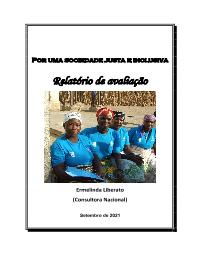
Final Evaluation Realization of a Justice and Inclusive Society Project
Output 2.2.3 Capacities, functions and financing of rule of law and national human rights institutions and systems strengthened to expand access to justice and combat discrimination, with a focus on women and other marginalised groups
Output 2.4.1 Gender-responsive legal and regulatory frameworks, policies and institutions strengthened, and solutions adopted, to address conservation, sustainable use and equitable benefit sharing of natural resources, in line with international conventions and national legislation
Goal 5. Achieve gender equality and empower all women and girls
Goal 16. Promote peaceful and inclusive societies for sustainable development, provide access to justice for all and build effective, accountable and inclusive institutions at all levels
5.1 End all forms of discrimination against all women and girls everywhere
16.3 Promote the rule of law at the national and international levels and ensure equal access to justice for all
16.4 By 2030, significantly reduce illicit financial and arms flows, strengthen the recovery and return of stolen assets and combat all forms of organized crime
16.6 Develop effective, accountable and transparent institutions at all levels
16.a Strengthen relevant national institutions, including through international cooperation, for building capacity at all levels, in particular in developing countries, to prevent violence and combat terrorism and crime
1: Governance
2: Others
3: Sustainable


